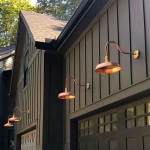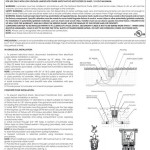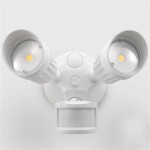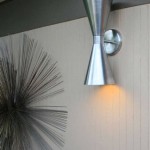Essential Aspects of Indoor and Outdoor Lighting Design
Lighting plays a crucial role in creating the right ambiance, functionality, and safety in both indoor and outdoor spaces. Whether it's illuminating a home, office, garden, or public area, thoughtful lighting design can enhance the aesthetic appeal, improve visibility, and influence the overall user experience.
In this Slideshare, we delve into the essential aspects of indoor and outdoor lighting design, exploring key concepts, benefits, and best practices to help you make informed decisions and create spaces that are both visually appealing and practical.
Indoor Lighting Design
Indoor lighting design primarily focuses on creating a comfortable and functional environment within enclosed spaces. It involves carefully selecting light sources, fixtures, and placement to achieve optimal illumination and ambiance.
- Natural Light: Maximizing natural light through windows and skylights reduces energy consumption and improves overall well-being.
- Layering Lighting: Combining different types of lighting, such as ambient, task, and accent lighting, creates a versatile and functional space.
- Color Temperature: Warm and cool color temperatures evoke different moods and can be used strategically to create specific atmospheres.
- Energy Efficiency: Selecting energy-efficient light bulbs and fixtures can reduce utility costs and contribute to sustainability.
- Controllability: Dimmers, timers, and smart home technologies allow for convenient and customized lighting control.
Outdoor Lighting Design
Outdoor lighting design focuses on illuminating exterior spaces to enhance safety, security, and aesthetics. It also plays a vital role in creating a welcoming and inviting ambiance for outdoor gatherings and activities.
- Purpose and Function: Determine the specific purpose of the lighting, whether it's for security, path illumination, or aesthetic enhancement.
- Lighting Plan: Develop a comprehensive lighting plan to ensure proper lighting coverage and avoid light pollution.
- Fixture Selection: Choose outdoor-rated fixtures that are weather-resistant and durable.
- Light Distribution: Consider the direction, beam angle, and brightness of the light to achieve the desired effect.
- Landscaping Integration: Integrate lighting into landscaping elements, such as trees, shrubs, and water features, to create dramatic effects.
Conclusion
Effective indoor and outdoor lighting design go beyond aesthetics to impact functionality, ambiance, and even well-being. By understanding the essential aspects discussed in this Slideshare, you can create spaces that are both visually appealing and practical, enhancing the overall user experience.
Remember to consult with experienced lighting designers or professionals for customized recommendations based on your specific needs and requirements. With careful planning and attention to detail, you can transform your indoor and outdoor spaces into vibrant, welcoming, and functional environments.

Ppt What Is Architectural Lighting Design Powerpoint Presentation Free Id 7501259

Ppt Lighting And Electrical Powerpoint Presentation Free Id 2232096

Modern House With Outdoor And Indoor Lighting At Night Presentation Graphics Powerpoint Example Slide Templates

Ppt Lighting Design In Architecture Powerpoint Presentation Free Id 6134346

Ppt Lighting Design Powerpoint Presentation Free Id 2142042

Ppt Lighting Design Lecture 9 March 22 For Tasks Powerpoint Presentation Id 999924

Lighting Building Service Ppt Free

Interior Lighting Themes For Powerpoint Construction Templates

Ppt Introduction To Outdoor Lighting Powerpoint Presentation Free Id 1711454
Related Posts







